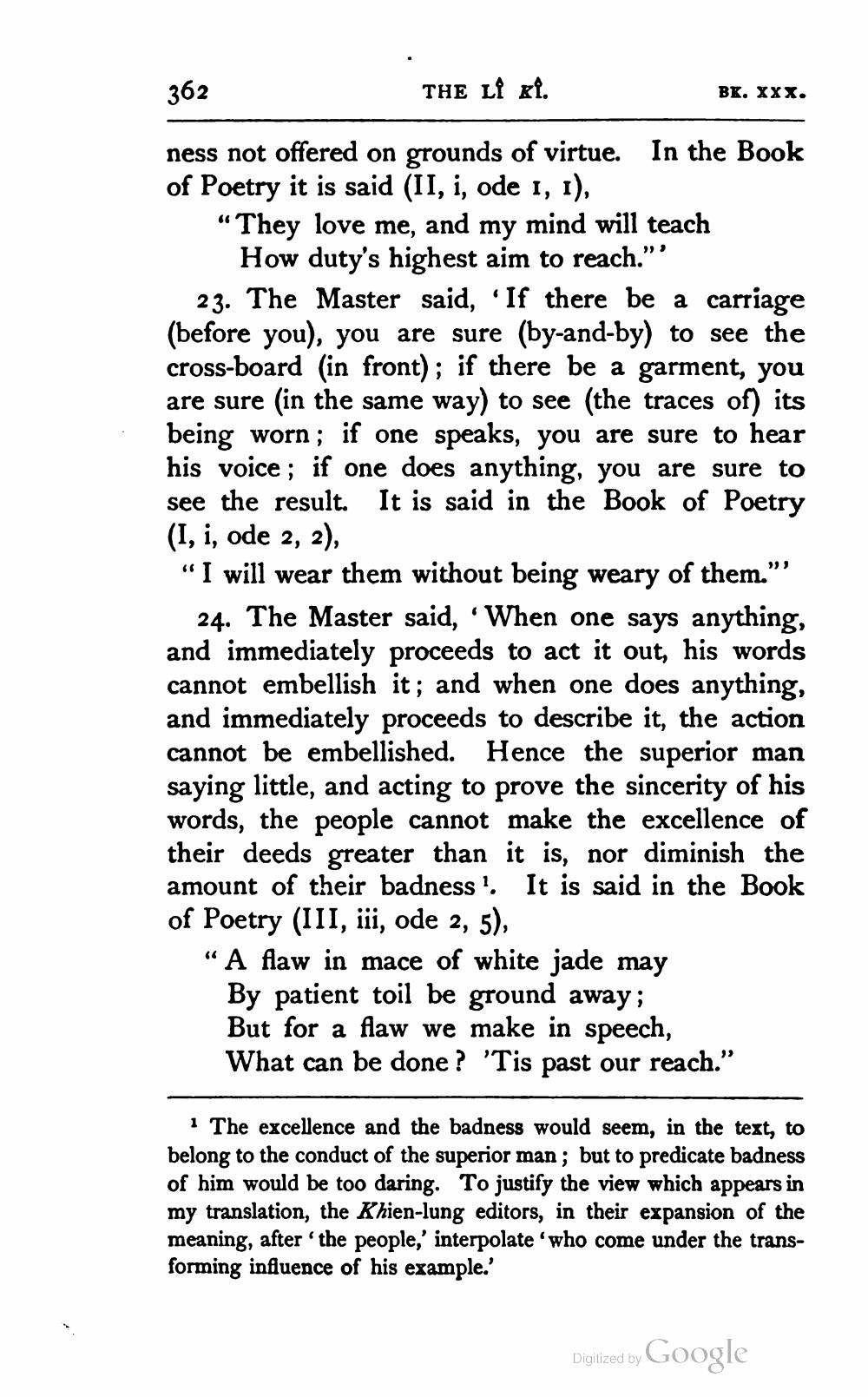________________
362
THE Lf rf.
BK. XXX.
ness not offered on grounds of virtue. In the Book of Poetry it is said (II, i, ode 1, 1),
"They love me, and my mind will teach
How duty's highest aim to reach.”' 23. The Master said, 'If there be a carriage (before you), you are sure (by-and-by) to see the cross-board (in front); if there be a garment, you are sure (in the same way) to see (the traces of) its being worn; if one speaks, you are sure to hear his voice; if one does anything, you are sure to see the result. It is said in the Book of Poetry (I, i, ode 2, 2), “I will wear them without being weary of them."
24. The Master said, “When one says anything, and immediately proceeds to act it out, his words cannot embellish it; and when one does anything, and immediately proceeds to describe it, the action cannot be embellished. Hence the superior man saying little, and acting to prove the sincerity of his words, the people cannot make the excellence of their deeds greater than it is, nor diminish the amount of their badness! It is said in the Book of Poetry (III, iii, ode 2, 5), “A flaw in mace of white jade may By patient toil be ground away; But for a flaw we make in speech, What can be done? 'Tis past our reach."
The excellence and the badness would seem, in the text, to belong to the conduct of the superior man; but to predicate badness of him would be too daring. To justify the view which appears in my translation, the Khien-lung editors, in their expansion of the meaning, after the people,' interpolate who come under the transforming influence of his example.'
Digitized by Google




